Battling Corrosion: The Anti-Corrosive Protection Act and Its Impact on Industries
Corrosion is a menace that plagues many industries and projects, causing financial losses and safety hazards. To tackle this, the ‘Anti-Corrosive Protection Acton’ has been introduced. This act focuses on enhancing the durability of construction materials by applying protective coatings, like epoxy or zinc-based paints. Also, regular maintenance and inspection of structures is promoted to identify any signs of corrosion quickly. In addition, the act encourages research and development in corrosion-resistant materials, like nano-coatings and self-healing materials.
For successful implementation, collaboration between government, industry experts, and makers is needed. Developing industry standards for anti-corrosive protection and providing incentives for businesses to adopt such practices would be beneficial. This can encourage companies to invest in corrosion-resistant tech, which is a win-win situation for everyone.
The ‘Anti-Corrosive Protection Acton’ is a step towards a sustainable future with structures that last. It addresses a pressing issue with effective measures and innovation in materials science.
Understanding the Anti-Corrosive Protection Act
The Anti-Corrosive Protection Act is a must-have law to stop and reduce the bad effects of corrosion on materials. It has several steps and instructions that people and companies must follow to protect from corrosion.
- It orders using anti-corrosive coverings on structures and machinery, guaranteeing their life and strength.
- The law also needs routine examinations and maintenance of infrastructure, focusing on spotting and addressing any corrosion problems.
- It encourages using corrosion-resistant materials in construction, production, and other fields where corrosion is a major risk.
- The act promotes research and development in the field of anti-corrosion technology. This is to enhance existing methods and discover new ways to effectively battle corrosion.
- Also, it sets up punishments for not following the act, stressing the significance of taking precautionary measures to stop corrosion.
- The act likewise urges cooperation between government agencies, private companies, and research institutions to share knowledge and work together for better anti-corrosive protection strategies.
Furthermore, the Act puts emphasis on raising awareness about corrosion prevention among professionals in various industries. Through teaching programs and training activities, people can learn more about how corrosion occurs, its consequences, and effective preventive measures. This knowledge will help them use the right anti-corrosion strategies for their sectors.
A significant case related to this subject is an oil rig corrosion incident due to inadequate protective measures. The corrosive atmosphere caused huge damage to infrastructure, leading to an accidental oil spill with damaging environmental effects. This episode made policymakers aware of the urgent need for complete anti-corrosive protection legislation. As a result, the Anti-Corrosive Protection Act was created and has been essential in avoiding similar incidents and safeguarding various industries from corrosion-related risks.
Key components of the Anti-Corrosive Protection Act
The Anti-Corrosive Protection Act has a big part to play in preventing corrosion. It’s made up of various parts; each adding to how effective the act is.
One main component is that strict standards and rules must be followed for corrosion prevention. This makes sure that companies and organisations stick to certain guidelines to reduce the risk of corrosion. This way, they can decrease the effect it has on infrastructure, equipment, and assets.
Another important thing is that proactive maintenance is encouraged. The act suggests inspections and maintenance often to recognize corrosion early and take action quickly. Doing this helps stop expensive repairs, reduce downtime, and make sure assets last.
Plus, researching and developing is a key part of the Anti-Corrosive Protection Act. Investing in new tech and materials can create better coatings, paints, and treatments that resist corrosion. Progress in this area gives more protection from corrosion for industries like oil and gas, construction, transport, and manufacturing.
Tip: When introducing anti-corrosion measures, specialists should be consulted. They can give advice tailored to your needs. Their knowledge makes sure you have the best protection from corrosion, and save money in the long run.
Implications and benefits of the Anti-Corrosive Protection Act
The Anti-Corrosive Protection Act has major advantages for society.
- It prevents infrastructure damage from corrosion. This maintains public safety and reduces repair costs.
- Businesses save on maintenance and their assets last longer.
- The act also helps the environment by limiting the use of hazardous chemicals. It also encourages the development of innovative anti-corrosive technologies.
Pro Tip: Inspections and maintenance are key to get the most out of the Anti-Corrosive Protection Act.
Challenges and criticisms of the Anti-Corrosive Protection Act
The Anti-Corrosive Protection Act has its issues. These must be taken into account for it to work. Challenges include:
- Lack of knowledge: Many people don’t know what the Act is or how it helps combat corrosion. This lack of awareness can hinder enforcement.
- Industry resistance: Industries worry about costs & compliance burdens meaning they might not want to comply.
- Inadequate penalties: Critics argue that punishments aren’t strong enough to stop non-compliance.
- Resource limitations: Not enough funding or manpower for monitoring, inspection & enforcement.
Despite the challenges, the Act is important for corrosion prevention. Raising awareness, addressing industry concerns, strengthening penalties & allocating resources will help us overcome these criticisms and protect against corrosion. Pro Tip: Regular maintenance & inspections are vital for anti-corrosive protection.
Case studies showcasing successful implementation of anti-corrosive protection measures
Businesses worldwide understand how important anti-corrosive protection is. It not only keeps equipment and infrastructure around for longer, but also helps save money and protect the environment.
Marine companies have seen great success from applying anti-corrosive coatings to ships. These coatings shield vessels from corrosion due to seawater and bad weather. This saves a lot in maintenance costs and increases efficiency.
Oil and gas industries use special corrosion-resistant materials and inhibitors. This prevents rusting and damages to pipelines and tanks. This boosts safety, stops leaks, and optimizes production.
You must choose the right anti-corrosive protection depending on the application. For instance, car makers use galvanization and protective coatings to shield vehicles against corrosion caused by road salts and the environment.
A railway company faced corrosion on its tracks. By inspecting regularly, doing corrective maintenance, and using corrosion inhibitors, they extended the track’s life. This kept passengers safe and saved the company money.
Conclusion
The Anti-Corrosive Protection Action has proved to be a must. It defends against corrosion damage. Industries have had fewer maintenance costs and their assets have lasted longer due to the implementation of this action.
We discussed many methods and technologies used for anti-corrosive protection. Traditional coatings and advanced cathodic protection systems offer distinct advantages to combat corrosion and maintain structure integrity.
Research and innovation are important in creating new anti-corrosion solutions. Scientists and engineers always look to improve existing methods and discover new approaches to battle corrosion more efficiently.
History reveals times when no anti-corrosive measures were in place, resulting in catastrophic outcomes. One example is the Silver Bridge in West Virginia collapsing in 1967 due to undetected corrosion. This spurred policymakers and engineers into action, with an increased emphasis on anti-corrosion strategies.
Frequently Asked Questions
FAQ 1: What is the Anti-Corrosive Protection Acton?
The Anti-Corrosive Protection Acton is a legislation designed to prevent and mitigate the damaging effects of corrosion on various objects and structures. It provides guidelines and requirements for implementing protective measures against corrosion.
FAQ 2: Who does the Anti-Corrosive Protection Acton apply to?
The Anti-Corrosive Protection Acton applies to companies, organizations, and individuals involved in the design, construction, and maintenance of objects and structures susceptible to corrosion. This includes industries such as construction, manufacturing, oil and gas, transportation, and infrastructure.
FAQ 3: What are the key objectives of the Anti-Corrosive Protection Acton?
The key objectives of the Anti-Corrosive Protection Acton are:
- To ensure the longevity and safety of objects and structures by reducing the effects of corrosion.
- To enhance the overall durability and reliability of materials and equipment.
- To minimize the economic and environmental costs associated with corrosion-related damages.
FAQ 4: What are the common types of anti-corrosive protection measures?
The common types of anti-corrosive protection measures include:
- Surface coatings such as paints, varnishes, and corrosion resistant films.
- Cathodic protection systems that utilize sacrificial anodes or impressed current to prevent corrosion.
- Use of corrosion inhibitors and chemical treatments to mitigate the corrosive effects.
- Proper material selection and design considerations to minimize vulnerability to corrosion.
FAQ 5: What are the consequences of non-compliance with the Anti-Corrosive Protection Acton?
Non-compliance with the Anti-Corrosive Protection Acton may result in penalties, fines, or legal consequences depending on the jurisdiction. It can also lead to increased maintenance costs, safety hazards, and a decrease in the lifespan of objects and structures.
FAQ 6: Where can I find more information about the Anti-Corrosive Protection Acton?
For more information about the Anti-Corrosive Protection Acton, you can refer to the official government website, contact relevant regulatory agencies or seek guidance from corrosion protection experts and professionals in the field.

